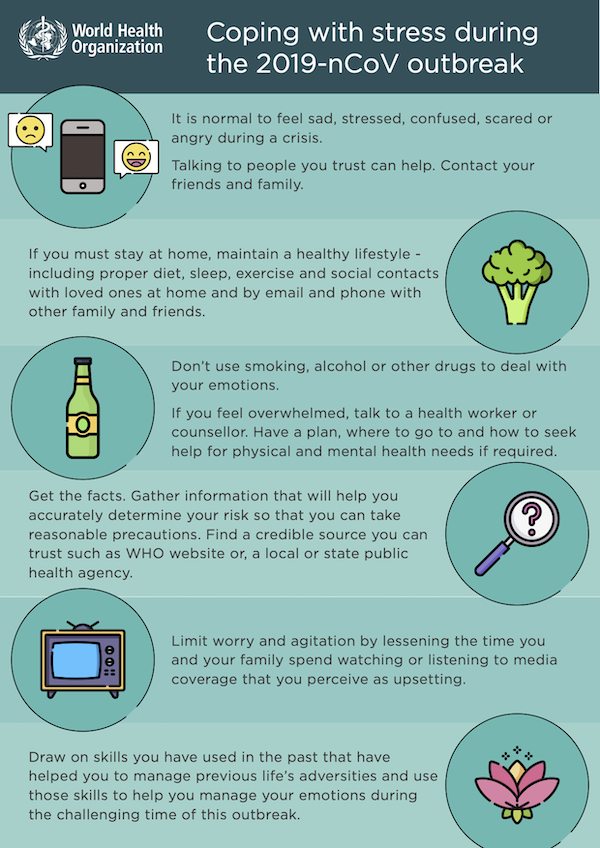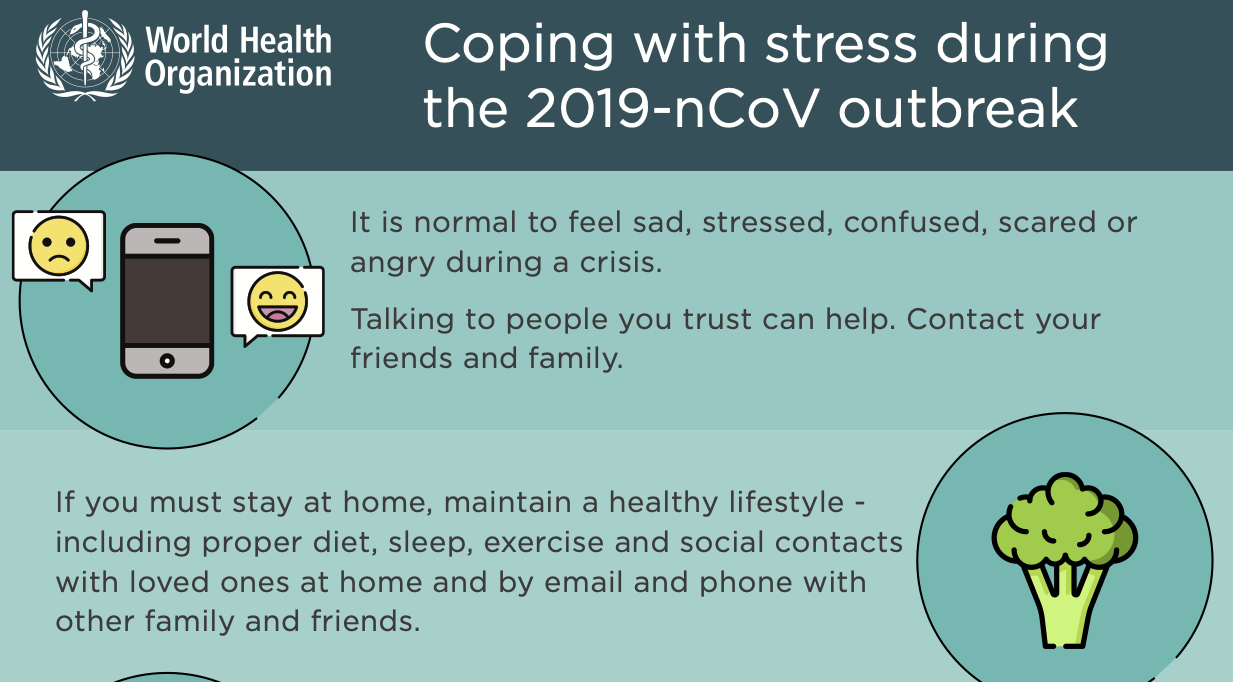On March 11th, 2020, the World Health Organization (WHO) declared the COVID-19 outbreak a pandemic. The novel virus (meaning it is a new strain that has not been previously identified in humans) is most dangerous for seniors, and people with certain chronic health conditions. By now, most British Columbians are aware of the things they should be doing to reduce the likelihood that they contract COVID-19, or spread it to others (jump to the end of this article for a refresher). Protecting your health and the health of others is very important, however there are also things you can do to protect your mental health during the COVID-19 outbreak.
Remind yourself that big emotions are to be expected in stressful situations like this one

As British Columbians experience the effects of this pandemic, many of us will experience strong, or even overwhelming emotions. For caregivers, this can be compounded by pre-existing feelings of stress, grief or guilt. Consider speaking with family and friends about what you are experiencing, or contacting a caregiver helpline.
Almost all of us will experience some degree of worry as a result of COVID-19. When these feelings get unmanageable, however, they can result in panic or anxiety, inability to concentrate on work or other responsibilities, problems sleeping or excessive alcohol or drug use. If you are experiencing these challenges consider reaching out to a counsellor, or physician. You may even think about trying one of the text or phone-based counselling services, which you can access from home.
People who have had mental health, or alcohol or substance use challenges in the past, or who are currently managing a mental health condition, should take extra care during this time, and (if necessary) ensure they have access to the medications they may need if they are required to self isolate.
Make a plan
Throughout the course of the pandemic it is possible that either you, or someone you care about will be required to self isolate.
People who are caring for a senior who lives in a care home may find the thought of not being able to visit their family member to be particularly distressing. Planning in advance can help, think about how you will get information from the care home and ways you can check-in with your family member if visiting isn’t possible.
If you are required to stay home, consider following a daily routine, exercise and mediate if possible, and check-in with family and friends by phone to reduce feelings of social isolation. If you are caring for someone who lives with you, think about ways to keep them occupied during long stretches at home.
Avoid information overload
There is new information emerging on COVID-19 by the hour. While it is important to remain informed, too much information can feel overwhelming. Limit your news intake to reputable sources. If you are feeling that the news, or social media, is making you feel anxious, consider setting a time limit.
Protect yourself and others
Reducing our exposure, and the exposure of others is critical to “flattening the curve.”
- Wash your hands frequently, with hot soapy water for at least 20 seconds. If soap and water is unavailable use hand sanitizer with at least 60% alcohol.
- Don’t touch your face with unwashed hands.
- Self-isolate if you feel ill, even if you think it’s just the sniffles.
- Cover your mouth and nose with your bent elbow or tissue when you cough or sneeze. Then dispose of the used tissue immediately.
- If you feel you may have contracted the virus, follow the steps recommended by HealthLink BC.
- Practice social isolation. This means avoiding large events or gatherings, maintaining at least 1 metre (3 feet) of distance between yourself and anyone who is coughing or sneezing and not shaking hands.
- Do not stockpile medical supplies or masks, this reduces the supplies for health care providers and puts others at risk.
Resources:
https://www.who.int/emergencies/diseases/novel-coronavirus-2019/advice-for-public
https://www.who.int/docs/default-source/coronaviruse/coping-with-stress.pdf?sfvrsn=9845bc3a_2




